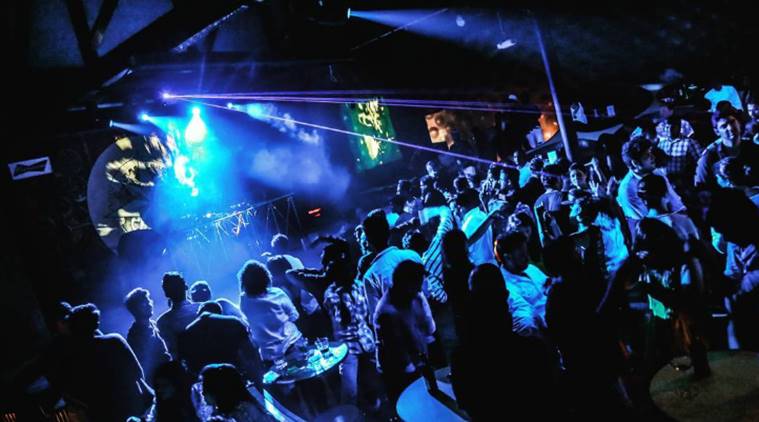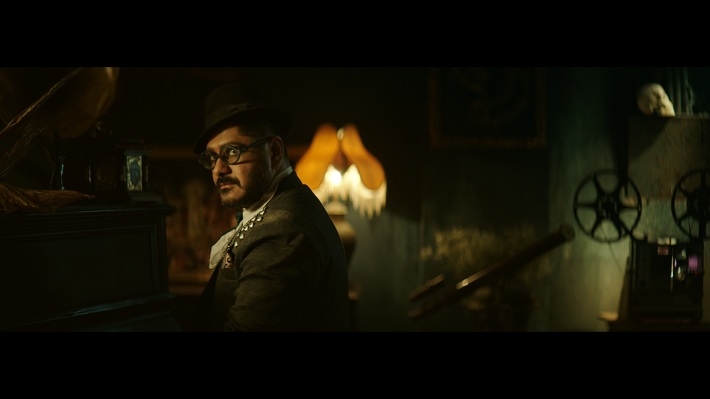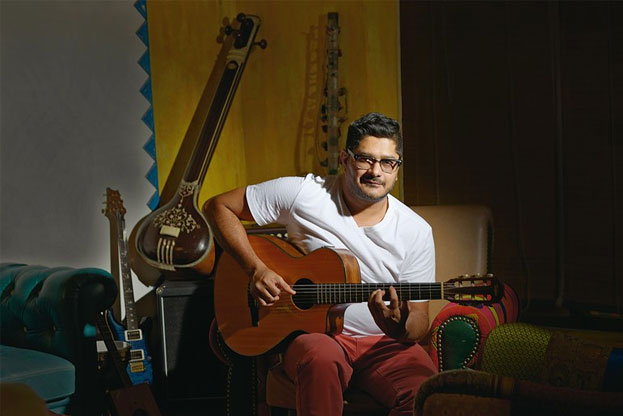BlueFROG, an iconic venue that changed the soundscape of Mumbai, is shutting shop next week. One of its founders looks back.
Written by Dhruv Ghanekar | Updated: August 21, 2016 5:49 pm
In the summer of 2006, Ashu Phatak and I began the tedious task of looking for a new space to expand Smoke Music, our music production company. It was whilst searching for a new home for our studio that we stumbled upon a 6,000 sq ft textile mill in Mathuradas Mill compound in Mumbai. It was love at first sight.
A few days later, when we were hanging out at Mahesh Mathai and Srila Chatterjee’s home, shooting the breeze, we began discussing the interesting space that we had seen. As the conversation got animated, we decided to step out, make a night of it — get some dinner, drinks, maybe listen to some music. In that moment, we realised that such a place did not actually exist! A place where one could hang out and listen to music that “we” liked. In a city that was supposed to be the financial capital our options were, well, zero.
With a working title — Sound Garden — we began discussing a blue print for what was to become BlueFROG. Soon, Simran Mulchandani came on board as our CFO — he became the acting CEO for most of BlueFROG’s course. Our mission was simple: To build a place that we’d like to hang out at, and more importantly, play the music that we wanted to listen to. Where music wasn’t playing second fiddle to diners but was the real hero. We set out to create a 360-degree music venture, comprising a state-of-the-art studio, a music label, artist management and supported by a performance venue. We needed a kick-ass design and world-class acoustics, so we got Kapil Gupta of Serie Architects on board; he delivered an iconic Spanish L’Scala-inspired design. Andy Munro of Munro Acoustics was brought in to design the acoustics of the club and the studios adjacent to it. Rahul Akerkar (of Indigo fame) and the Degustibus team came on board as our F&B partners.
With that simple mandate we set out to build BlueFROG. The music that we programmed in the first few years reflected our vision and tastes — jazz in all its forms, blues, Afro-Cuban, lots of African sounds, South American, Cuban, flamenco, electronica — the list stretched wide and stopped short at Bollywood.
At the time, the music scene in India had faded away into obscurity, Bollywood playlists featured at almost all night clubs and karaoke and classic rock cover bands were the norm. As I was heading the programming in the early days, the brief I gave myself was this: “Look for artists that excite you, inspire you, make you want to sling your guitar and jump on stage”. The task was arduous given the fact that the local music scene was not yet mature; there was a scarcity of good local acts. So to offset that, we set ourselves the arduous challenge to programme one international act a week. We had to work two months in advance to line-up approximately 40 nights of music. So off I went calling and emailing everyone I had met on my travels, friends made over the years, musicians that I hung out with and even a few cold calls. On almost every count, I was greeted with warm, affirmative responses: “India, wow we’d love to play there!”
BlueFROG opened to the public on December 12, 2007. Shaa’ir n Func and my band Kromazome-i played on opening night and in the months to follow, we had some heavyweights coming through our doors — Zakir Hussein with Bela Fleck, Richard Bona, Bugge Wesseltoft, John McLaughlin, Bauchklang, Imogen Heap, Infected Mushroom, Bob Belden, Mike Stern, Raul Midon, Sylvan Luc, Angelie Kidjo. Within a few months, BlueFROG was listed as one of the top 10 best live venues in the world; the word had spread and those cold calls were now met with enthusiastic “yes-s”.
Slowly but surely, the local music scene changed. Bands from across the country emerged and we began receiving demos and videos from Shillong to Pondicherry, Jaipur to Cochin — a scene was brewing.
Soulmate, an established band in the Northeast, but still relatively unknown in Mumbai, played their first gig at the Frog in 2008, and they kept coming back every few months — we just couldn’t get enough of them. The programming team also created an early set to accommodate and showcase many talented singer songwriters, some of whom have now become stars such as Nikhil D’souza, Vasudha Sharma, to name a few.
One of BlueFROG’s shining moments came in 2009. The Jazz Utsav was scheduled to take place on November 21 at the Priyadarshini park in south Mumbai. I was in Kolkata, about to leave my hotel and perform at the Kolkata leg of the festival. As I was about to step out of the door, an old friend, the late Amit Saigal, called. He was involved with the festival and was in trouble. The authorities had shut down the Mumbai event because of some “technicality”, and the situation looked rather grim. There were several international artists scheduled to perform in a matter of hours and Amit asked if the festival could move to the Frog.
We had artists scheduled to play for that night and the following nights as well. Moving an entire festival in a matter of a few hours was a logistical nightmare! After some frantic consultation over the phone with Mahesh and the managers, we pulled off the impossible and BlueFROG hosted the Jazz Utsav for over two nights.
Despite all the glory, we attracted some criticism for the exorbitant cover charge and drinks. The Frog was labelled too “bourgeoisie” by social media critics and we were called “a music venue for townies”. We listened. To bring in students and a younger crowd, we created free entry before 9 pm and lowered our F&B prices.
The blood, sweat and tears in those first few years reaped rich dividends. By creating a platform for musicians to showcase their wares, BlueFROG pegged local talent against the best in the world. Soulmate, Shaa’ir n Func, MIDIval Punditz, Jalebee Cartel, Avial, Bombay Basement are just a few names that were hosted at the Frog and have since gone on to become forerunners in the Indian indie music scene.
A few months short of its ninth birthday, BlueFROG will hang its boots up and relocate to a new location. High rents and a change in the dynamics of the business have played a role in the decision to relocate. The venue will feature a month-long programme culminating in a three-day festival ending on August 28, featuring its favourite artists.
BlueFROG changed my life and my relationship with music. It brought me closer to the root of why I began making music in the first place. Back then, a typical day was spent composing music for a film through the day at the studios, and then casually strolling into the club and being invited to jam with the band that was playing that night.
Some of these experiences are indelibly etched in my mind, of which playing with jazz bassist Richard Bona ranks as one of my favourite memories. Then, there was the incredible Raúl Midón, who I got to jam with on his second night; we collaborated on my album too. The lessons weren’t restricted to just the stage, as my understanding of the music business grew wider and came from firsthand experience of running a live venue.
I cannot count the number of times the music fraternity has thanked us for BlueFROG. To me, that is the greatest reward a musician can ask for.
Dhruv Ghanekar is a Mumbai-based composer, music producer and founding partner of BlueFROG.



